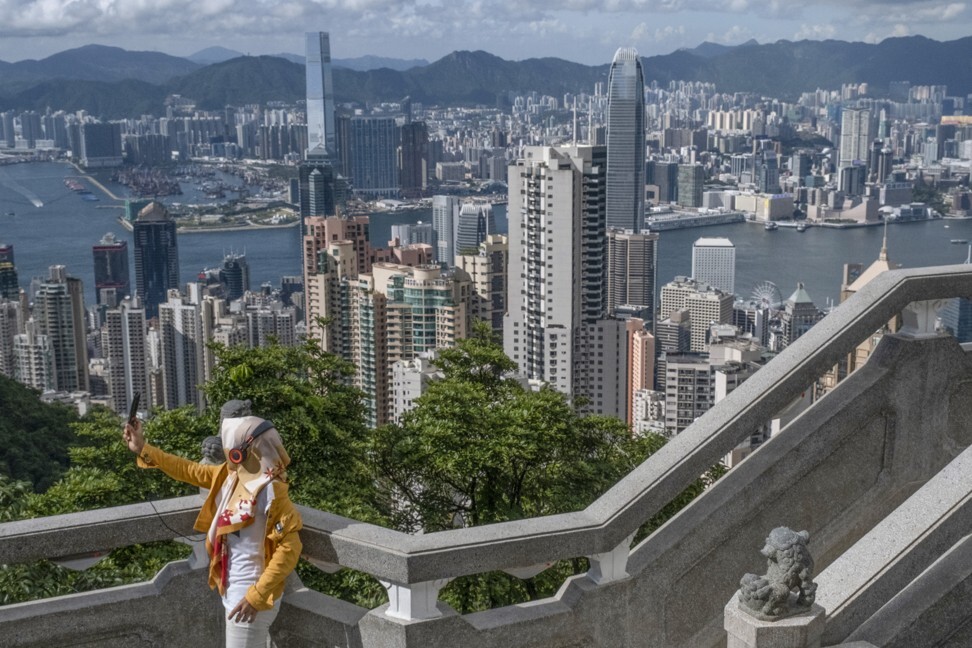
Hong Kong-Singapore travel bubble: differing Covid-19 tactics dashed hopes of striking a deal on quarantine-free travel, officials say
- Contrasting tactics for dealing with the coronavirus crisis were the downfall of plans for bilateral quarantine-free travel, Hong Kong government says
- Senior figures in city tourism say concept of such deals set to be eclipsed in favour of other approaches
But the city state will begin admitting short-term visitors from Hong Kong and Macau without requiring them to quarantine starting on August 26, despite the measure not being reciprocated.
Singapore citizens, permanent residents and holders of work visas and other long-term passes arriving from those two cities will have earlier access to the scheme, launching on Saturday.
Singapore cuts quarantine for Hong Kong, even as travel bubble bursts
But Singapore in May said it wanted to transition towards a policy of “living with the virus”, in contrast to Hong Kong sticking with its “zero infections” target.
“With Singapore currently moving towards a new strategy of building a ‘Covid-resilient’ nation, the basic premises that underpin the [bubble] have changed,” a Hong Kong government spokesman said.
“Take for instance the seven-day moving average of unlinked local cases, which is the criterion for suspending and resuming the ATB [air travel bubble] as per the agreed framework. The figure may not be kept consistently at the required level in Singapore as a result of its new strategy.”
The spokesman on Thursday said that both governments had agreed not to hold further discussions on a travel bubble.
Singapore Transport Minister S. Iswaran also pointed to differences in the pandemic strategies of both cities when announcing the decision on Thursday, saying his administration would not be able to launch or sustain the travel bubble in the form previously agreed.

Under a previously agreed mechanism, the bubble, once launched, would be suspended if a seven-day moving average of unlinked Covid-19 cases in either city exceeded five.
Hong Kong has been striving for zero infections in the hope that mainland Chinese authorities would resume cross-border travel with the city. Most of the cases recorded in Hong Kong over the last two months were imported.
Singapore-Hong Kong travel bubble: late August review for delayed deal
Singapore’s planned approach is to adapt to living with the coronavirus, with ministers pegging the relaxation of Covid-19 rules to vaccination milestones.
For example, authorities hope to allow quarantine-free travel with some countries when vaccination rates reach 80 per cent, expected by September.

01:40
Travel bubble: Hong Kong and Singapore to launch quarantine-free entry after long delay
The planned Singapore-Hong Kong travel bubble has been postponed twice – last November and this May – after fresh outbreaks.
In March, commerce minister Edward Yau Tang-wah said the government had written to countries such as Japan, South Korea, Thailand, Vietnam, Australia and New Zealand to explore similar quarantine-free arrangements, with progress dependent on how the pandemic developed.
Tourism lawmaker Yiu Si-wing said many Western countries were now treating the health crisis similar to seasonal influenza, while Hong Kong and the mainland continued to adopt a stricter approach.
“So if most overseas countries are adopting relatively relaxed standards, then the launch of other travel corridors involving Hong Kong and these countries will be increasingly difficult,” Yiu said.
He added Hong Kong was more interested in reopening the mainland border than restoring travel with overseas countries, with nearly 80 per cent of city arrivals traditionally coming from that part of the country.
Yiu predicted that future plans for resuming quarantine-free travel schemes with other countries dropping the “zero infection” target would hinge on the mainland approach to those destinations.
Timothy Chui Ting-pong, executive director of the Hong Kong Tourism Association, said the bubble bursting was not a disappointment because the travel sector did not have any expectations in the first place.
Chui stressed that only reopening its borders with the mainland could save the tourism industry.
“We have to wait for the global pandemic to come under control or have a chance to end, then we will see possibilities to resume normal travelling with other countries,” he said.
He forecast the full reopening of Hong Kong’s borders to the world might only be possible in 2023 at the earliest.
“The prerequisite for launching a travel bubble is having the pandemic in either place under control, and this very much depends on the global development,” he said.

